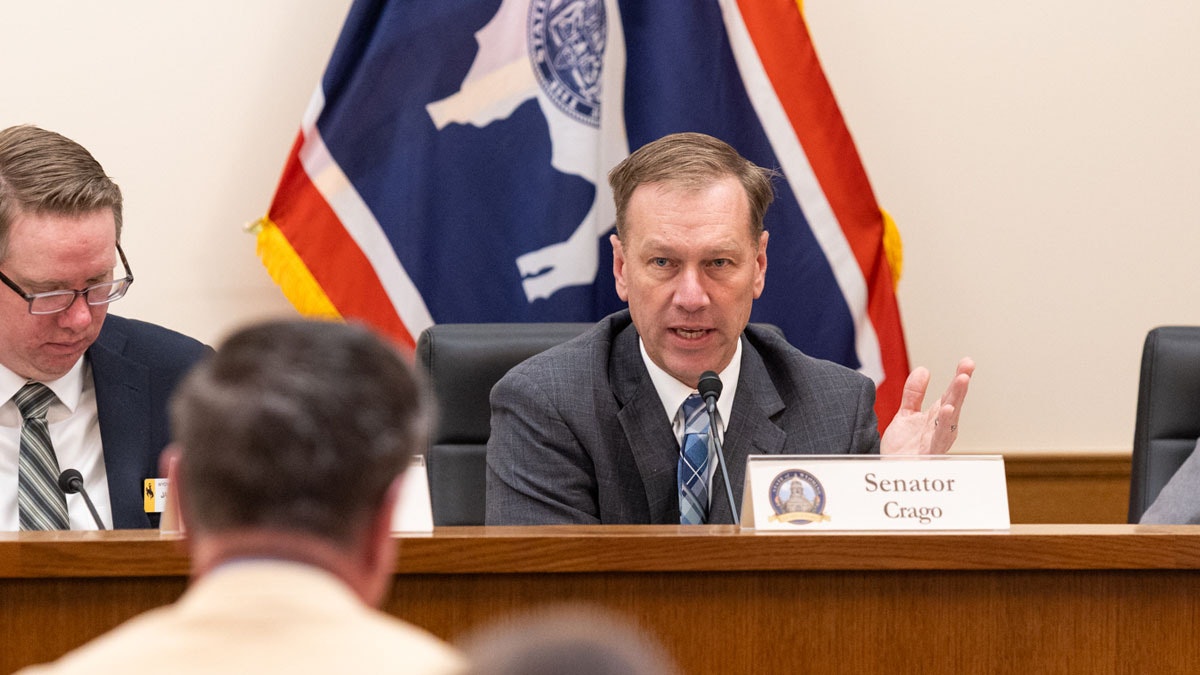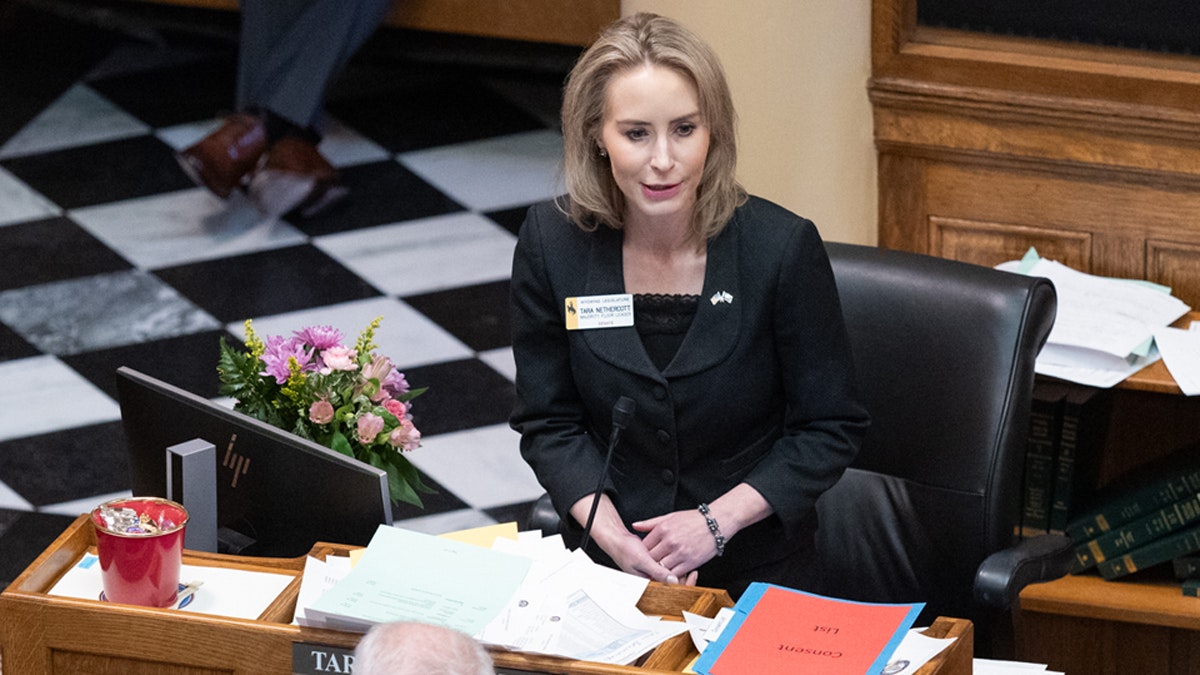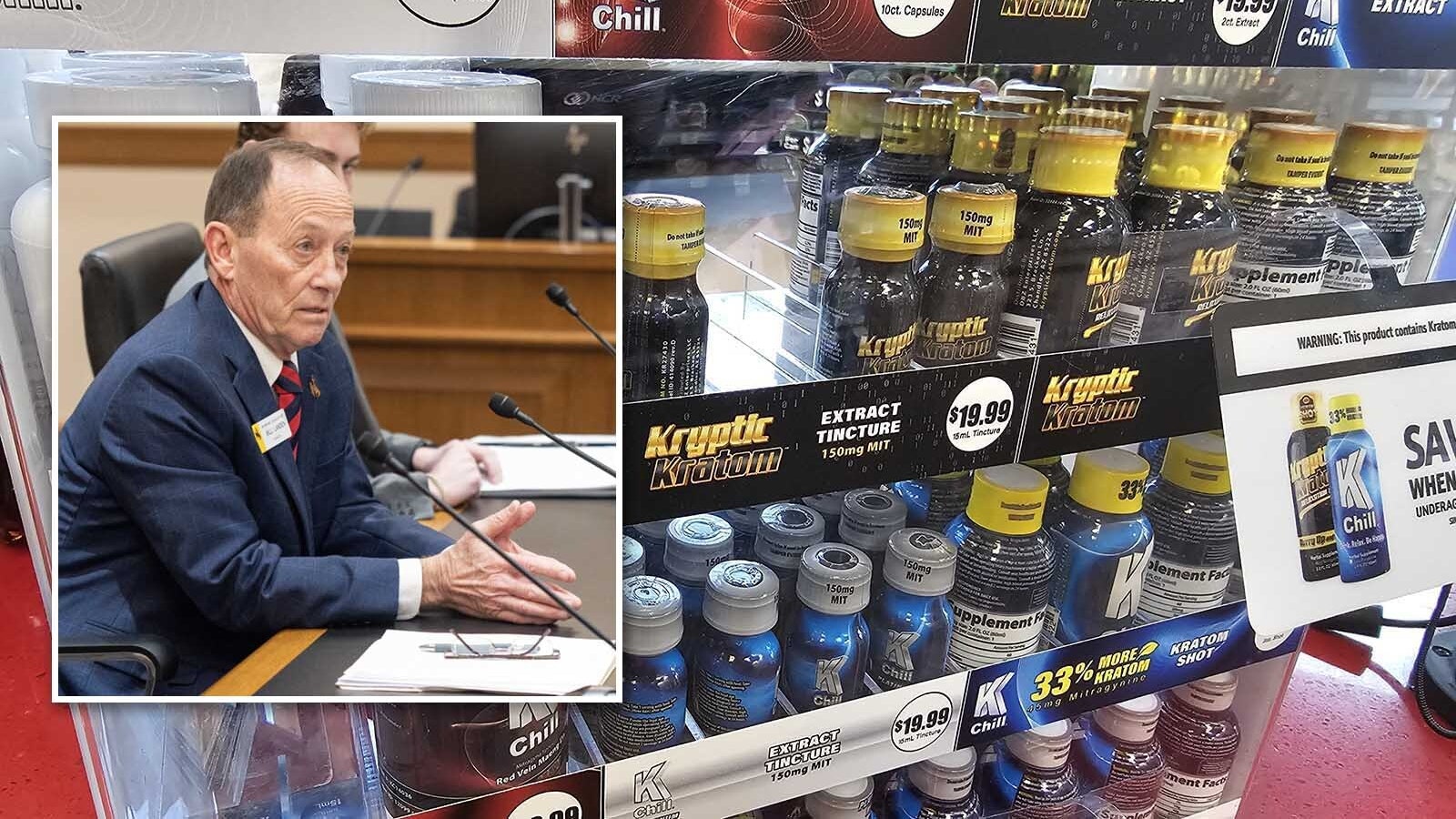A joint committee of Wyoming lawmakers on Friday voted to advance a controversial proposal which would prevent beneficiaries of Wyoming’s Supplemental Nutrition Assistance Program (SNAP) from using the benefits to buy candy, soft drinks or other junk food.
State Rep. Jacob Wasserburger, R-Cheyenne, proposed similar legislation during the 2025 session. That measure would have required the director of Wyoming’s Department of Family Services to apply for a federal waiver amending the program’s definition of food to exclude popular types of junk food.
Wasserburger’s measure failed to advance past the Senate Agriculture Committee at that time. He told Cowboy State Daily during a break in a Friday meeting of the Labor, Health and Social Services committee he feels confident the measure will pass in the 2026 session.
“It just has to do with when you use tax dollars you want it to be used appropriately,” he said. “That was the original intent of SNAP as a supplemental nutrition program.”
“With the Big Beautiful Bill passing, I have no doubt that it will [pass],” he added.
While the committee’s decision does not yet enshrine the measure into law, it pushed the bill past a critical first hurdle. Because the 2026 legislative session is dedicated to passing the state budget, new legislation must receive a two-thirds majority in both the House and Senate to advance.
The committee’s sponsorship of the bill gives it an edge going into the session.
‘Pretty Spicy’
Committee Co-chair Rep. Rachel Rodriguez-Williams, R- Cody, told Cowboy State Daily ahead of the meeting she predicted the discussion would become “pretty spicy” given the presence of several lobbyists.
Korin Schmidt, director of the Wyoming Department of Family Services, testified before the committee, saying her department would research whether excluding the junk foods would lead to health improvements in SNAP recipients should the bill pass. If the results yield an overall health improvement, Schmidt said, the department could continue applying for the federal waiver in subsequent years.
Passing the bill would require the department to hire additional staff including compliance officers and a dietitian, which could cost as much as $650,000, she added.
Schmidt also called on the committee to make the definition of candy airtight to avoid confusion with other types of foods, such as granola bars that include chocolate.
She touted Wyoming’s control of its SNAP program, saying the state has been successful in eliminating ineligible payments to fraudsters. The state has continually been below a 6% error rate, which is the threshold that mandates the state to contribute money toward food costs.
Sen. Lynn Hutchings, R- Cheyenne, voiced her support for the initiative, describing those who use SNAP to purchase unhealthy food as being a “cannibal for other people’s money.”
She added those who want to eat unhealthy foods should do so on their own dime.
Sen. Cheri Steinmetz, R- Torrington, asserted that department’s expected costs are too high given the fact that the committee could not force SNAP recipients to be healthy.
Schmidt countered, saying one of the department’s duties is to educate recipients about how to eat healthily and the funds would help that goal.
Business Angle
Nick Agopian of the Wyoming Beverage Association said his group is opposed to the legislation given the potential impacts it could have on retailers who rely on sales of products that qualify as junk food.
Rep. Darin McCann, R-Rock Springs, pressed Agopian to answer whether he allows his children to drink soda before Rodriguez-Willaims asked him to remain on topic. Agopian admitted he drank a Coke for breakfast that morning.
McCann later apologized for the pointed question.
Wasserburger also pressed Agopian, saying he has not seen companies like Pepsi or Coca Cola see decreases in stock price since this movement started in other Western states.
Agopian declined to comment on that question.
Rep. Mike Yin, D-Jackson, expressed confusion with why the federal government did not choose to change federal SNAP laws instead of asking states to do it themselves.
Tim Puglisi of advocacy group FGA Action said such an initiative has continually failed to pass at the federal level.
Sweeteners
When the measure went to committee discussion, Sen. Charles Scott, R- Casper, proposed an appropriation in the bill of $1.3 million for the coming biennium budget, to give DFS the money it said it needed to adjust to the waiver.
Hutchings argued that move was premature given the approval process for the SNAP waiver.
Wasserburger echoed that sentiment, adding that the state could implement changes with independent contractors rather than employees.
Scott pushed back by saying the department could face an administrative burden without an appropriation.
That amendment failed.
Yin then proposed an amendment to strike language restricting SNAP purchasers from buying foods with artificial sweeteners.
“We all agree that sugar is not great,” he said. “Of course, artificial sweeteners are also not great, but they are better."
Hutchings called that move akin to promoting processed foods over ones with natural sweeteners. Scott said such a provision would also create confusion due to the difference between diet and regular soft drinks.
That also amendment failed.
Rodriguez-Williams then proposed an amendment which would ban SNAP users from purchasing accessory foods, or items deemed unnecessary by SNAP like cookies, ice cream and chips.
Yin called for accessory foods to be used as a definition in place of “candy and soft drinks,” which Rodriguez-Williams approved.
Wasserburger said that change would complicate the bill too much, as it would also remove condiments like ketchup and mustard. That amendment passed.
The committee then moved for a roll call vote on the measure. It passed with 12 votes of approval and two against. Only Yin and Scott were opposed to the measure.
National Debate
Several states across the western United States have already signed similar junk food waivers including Colorado, Nebraska, Idaho and Utah, according to an August release from the U.S. Department of Health and Human Services (HHS).
HHS Secretary Robert F. Kennedy Jr., who pioneered the “Make America Healthy Again” movement, lambasted SNAP as a means for fueling an American health crisis.
“For years, SNAP has used taxpayer dollars to fund soda and candy—products that fuel America’s diabetes and chronic disease epidemics,” Kennedy said. “These waivers help put real food back at the center of the program and empower states to lead the charge in protecting public health.”
Other national leaders argue the move could exacerbate food insecurity issues created by food deserts.
An April article by the University of Michigan School of Public Health argued SNAP and other food programs need to be expanded, rather than shrunk.
“If we truly care about public health, we should not be taking resources away from families,” the piece reads. “We should instead be investing more in supportive programs known to reduce food insecurity and improve health, including SNAP, Medicaid, and WIC.”
The story, rather, urges scrutiny on companies, saying "we need to look to address unethical corporate practices that encourage soda intake, like the targeted marketing of sugary beverages to low-income communities of color.”
Budget Woes
The Wyoming state legislature this year must also confront growing concerns over a projected $3 million budget shortfall facing the state SNAP program.
The President Donald Trump-endorsed One Big Beautiful Bill Act, which Wyoming’s congressional delegation supported, decreased the federal government’s responsibility to fund state food assistance, or SNAP programs.
In Wyoming, that means the state will be required to cover 75% of the administrative costs for its food stamps program, an increase from 50%.
Tom Lacock, associate state director for AARP Wyoming, told Cowboy State Daily in September the $3.4 million amount could place the program in jeopardy.
“There’s just under 12,500 kids on SNAP right now,” he said. “That would be big. That would be really, really big in terms of pulling food away from them.”
Rep. John Bear, R-Gillette, who co-chairs the Joint Appropriations Committee, told Cowboy State Daily that SNAP is just one of several programs that rely on his committee for funding.
“In a multibillion-dollar biennial budget, $3 million is not that much, but $3 million here and $3 million there adds up, and we have a lot of programs that we’re looking at and all of them are important,” he said in September. “The question is which ones are more important than others?”
The Wyoming Department of Family Services on Thursday announced that due to the federal government shutdown Wyoming’s SNAP beneficiaries will not receive their November food benefits unless funding is restored.
Jackson Walker can be reached at walker@cowboystatedaily.com.





